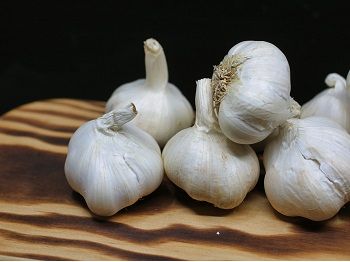Are There Ways To Improve Energy Levels For Boomers and Seniors?
Are you tired of drinking three cups of coffee every morning to boost your energy? Do you find yourself crashing by noon and requiring an energy drink to stay awake and refrain from a nap? If this sounds like your daily routine, the article below is for you. Why? Because our team at Active Aging takes a deep dive into everything you’ll need to know about increasing energy levels and decreasing tiredness. We look at the fundamentals, like the role of supplements, how caffeine affects the body, why vitamins may be an optimal choice, and how your sleep could be the key to it all. We hope you enjoy this article as much as we did writing it!!
Is Vitamin B12 Good For Energy?
While all the B vitamins play a vital role in the body’s energy production, they don’t provide you with energy directly. However, if you’re deficient in vitamin B12, taking a supplement may improve your energy levels because of the vitamin’s beneficial effect on many critical bodily systems. In fact, fatigue and lack of energy are early signs of vitamin B12 deficiency.
So what is vitamin B12? Funny, you should ask. Vitamin B12 is one of the eight B vitamins that help your body convert food into energy. Additionally, B12 helps the body with the following:
-
Produce red blood cells
-
Regenerate GI tract lining and bone marrow
-
Prevent neuron loss in the brain
-
Improve depression symptoms
If you are wary of taking supplements, you can boost your vitamin B12 levels by eating certain foods. Smoked salmon, turkey, eggs, and skim milk are good sources of vitamin B12. And if you are vegan, nutritional yeast and fortified cereals have this vitamin as well.
Which Vitamins and Supplements Are Good For Energy and Tiredness?
At times it is helpful to improve your energy levels through supplements. Below you’ll find three of our favorite vitamin and supplement options sure to increase your energy levels.
| Vitamin/Supplement | Pros | Cons |
| Ashwagandha | Fights Stress | Long-Term Effects Unknown |
| Iron | Transports Oxygen to Organs | Can Cause Nausea |
| Creatine | Helps Body Produce More ATP | Can Make You Look Bulky |
Ashwagandha
This herb is part of a system of traditional medicine that originated in India. Ashwagandha helps you feel energized by enhancing your body’s resistance to stress. Many people enjoy adding it to their coffee to combat the jitteriness caused by caffeine. Additionally, Ashwagandha may help lower blood sugar levels and inflammation in the body and promote healing. Because it is an adaptogenic herb, it is recommended to help with insomnia, reduce anxiety, and improve memory. While it is considered safe, its long-term effects are unknown. Before taking any new supplements, always consult your doctor for a recommended dosage.
Iron
Iron is an essential nutrient for the body, as it is part of hemoglobin- a protein in red blood cells responsible for transporting oxygen to your organs and lungs. A low iron level in the body prevents your red blood cells from circulating oxygen effectively. When you have an iron deficiency, you experience weakness and fatigue. If this is the case, you may need iron supplements to support your red blood cells. Some foods high in iron include spinach, cashews, lentils, and ground beef. Although most people react well to iron, if you have too much iron it can cause nausea.
Creatine
Creatine is a substance in your body, stored in muscle cells in the form of phosphocreatine, which provide a source of energy. It is naturally found in red meat, pork, poultry, and fish. Adenosine triphosphate (ATP) is the compound your body utilizes for energy. Increasing your phosphocreatine stores helps your body produce more ATP, keeping your energy levels high. When performing high-intensity level training, creatine helps your body maintain that quick energy boost. Creatine is also beneficial for short and long-term muscle growth and may improve cognitive functions. The negative to creatine is it can make you feel and look heavy/bulky if you are not careful about pairing it with a proper diet.
Energy and Metabolism
All living organisms need energy to complete daily tasks. Our metabolism starts the process of turning food into energy. Chemical energy from foods is stored in molecules and can be turned into energy, which our bodies use to stay alert and active.
So, What Converts Food Into Energy?
You may wonder how the food we eat turns into energy for fueling our activities. Our body converts food into fuel not only for high-level activities but also for day-to-day functioning. The process begins when we start chewing our food. Enzymes in the digestive system start breaking down the food into molecules to use in our system. Once the food converts to glucose, the glucose is released into the bloodstream to be used by cells. Through cellular respiration, glucose and oxygen convert into carbon dioxide and water, which transfers to ATP. It is this process by which the body takes the food you consume and converts it into usable fuel so that you can keep active.
Energy Drinks Could Be a Double-Edge Sword
When you consume an energy drink, you may forget that it’s not just caffeine you are taking in. Along with the caffeine, a stimulant, you will consume a potent mixture containing high sugar levels and other chemical stimuli such as guarana, taurine, and L-carnitine. The combination of these ingredients intends to improve your alertness and mood.
Although energy drinks are marketed to be beneficial, the long-term effects of these drinks may be doing more harm than good. Recent data suggest a link between the level of energy one consumes and their level of depression. The intense increase in energy you experience from energy drinks and subsequent crashes may make you more depressed. More studies are necessary to prove this theory; however, the concept is logical.
What Are the Pros and Cons of Caffeine for Energy?
While caffeine provides some benefits when consumed moderately, drinking too much coffee can quickly turn those benefits into negatives. Let’s explore the pros and cons of boomers and seniors using caffeine for energy.
Increase Mental Alertness
A neuromodulator, adenosine, communicates with your central nervous system to slow down your neural activity when your body grows tired. The adenosine allows your body to relax and prepare for a good night’s rest. When you drink caffeinated beverages, your body feels more alert because the caffeine in your brain blocks adenosine receptors, delaying sleep.
Unfortunately, the effects of drinking coffee for that quick mental boost can become dull fast. For this reason, so many coffee drinkers become easily dependent on caffeine. Caffeine withdrawal symptoms can begin 12 to 24 hours after one’s last caffeine intake, and symptoms range in severity based on how much caffeine is typically consumed. Unwanted symptoms like headaches, tiredness, and difficulty concentrating can all nudge someone to pick up using caffeine again.
Adding to this, having too much caffeine intake can also lead to adverse side effects. Some of these include insomnia, restlessness, anxiety, and tremors. Finding the right balance for caffeine can be an arduous task. It may be best to consider forgoing the stimulant altogether if you struggle to find a balance.
Boost in Metabolism
Research shows that caffeine helps boost metabolism by encouraging fat from cells to be used for energy. Caffeine stimulates the nervous system and increases the hormone epinephrine, which tells your fat cells to break down further, allowing you to lose weight. But do not be misled! There is no solid evidence proving that caffeine works as a long-term weight loss solution. You also want to keep in mind that many caffeine beverages are packed with added sugar which is counterintuitive.
Prevent Chronic Illness
Some data shows that coffee consumption may reduce the risk of certain diseases. Among these illnesses are type 2 diabetes, Parkinson’s disease, and certain types of cancer. A study found that people who drink 4-5 cups of coffee a day are 50% less likely to get Parkinson’s disease. While this may seem impressive, remember that correlation does not necessarily mean causation - and 5 cups contain a lot of caffeine! More investigation around this presumption needs to be carried out as studies on whether caffeine can reduce the risk of certain diseases remain unclear.
Hydration and Energy
If you’re struggling to maintain energy levels, research shows that increased water intake can help. Staying hydrated can keep your muscles energized and ensure high activity levels. Dehydration can cause low energy or fatigue, so by drinking more water, you can avoid this. Also, dehydration can affect your mood and ability to stay level-headed, all the more reason to keep drinking your water! Here is a daily water intake chart by age and weight for senior citizens. Here at Active Aging, we also recommend filtering your water before drinking.
How Sleep Can Improve Energy Levels
Insufficient sleep can cause your energy levels to remain low. So to ensure you have enough energy to make it throughout the day, prioritize getting a good night of rest. Schedule at least eight hours of uninterrupted sleep every night. Turn off phones and screens in advance! Here is an article for a more in-depth discussion on ways to improve your sleep as you age. Some quick takeaways from the report include pre-planning your next morning, avoiding napping, and getting proper nutrition and exercise.
Alcohol and Energy Levels
From a margarita to a glass of scotch on the rocks, most of us love a good drink after work. However, alcohol is a depressant that slows down nerve impulses in the brain. Alcohol also affects reaction times, making it difficult to quickly sober up even if the person has not consumed much. While alcohol consumption can make people feel more energetic for a brief moment, it actually does the opposite by using up energy stores and slowing down metabolism rates. Alcohol also negatively impacts sleep, making you more tired the next day.
Conclusion
Combating tiredness and fatigue is difficult but can be overcome! By including the lifestyle changes recommended above, sourcing delicious, whole foods containing energy-promoting nutrients, staying hydrated, and setting up your sleep routine correctly, you will feel more energy in no time!
We hope this article and our wellness-focused blogs help you stay informed and give you tips and tricks to begin making intelligent decisions in your daily routine.



